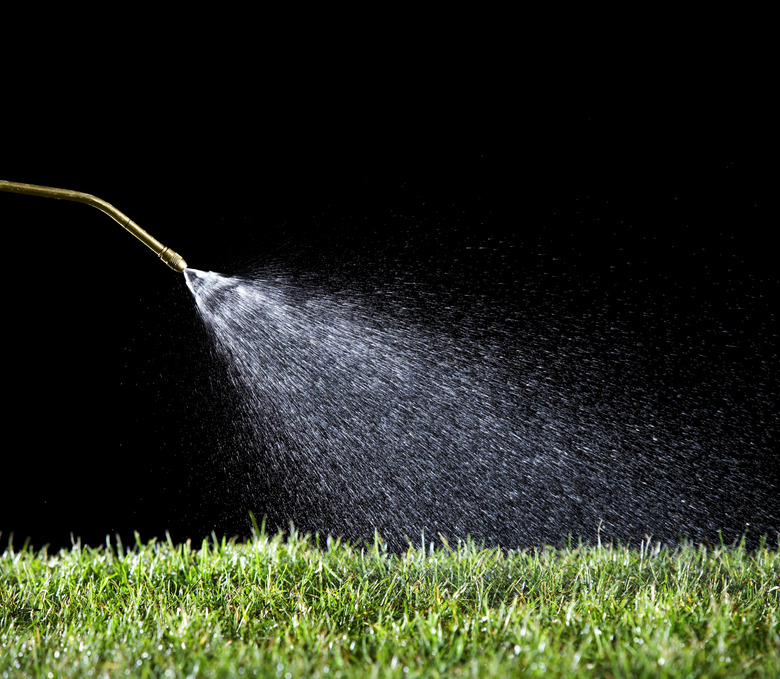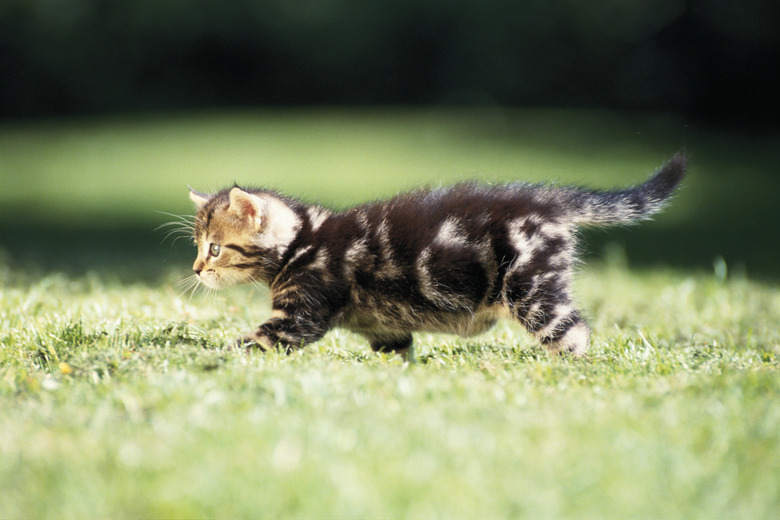How Long Can Fertilizer Sit On A Yard Without Water?
Fertilizer can give your lawn a quick boost in both color and vitality — or it can leave burn spots on your grass. Proper application techniques, including knowing when to water and how much, can help you grow a healthy, attractive lawn.
Fertilizer can give your lawn a quick boost in both color and vitality — or it can leave burn spots on your grass. Proper application techniques, including knowing when to water and how much, can help you grow a healthy, attractive lawn.
Green Grass Rules
American homeowners love green grass. In fact, homeowners dump more than 70 tons of fertilizer on their lawns each year, according to BuildingGreen.com, an online resource for the building and facilities management industries. With that much fertilizer in use, understanding its proper usage is key to a healthy lawn.
Water Activates Fertilizer
Dry fertilizers are usually produced in pellet form. Fertilizer bags are convenient to transport and easy to store, and dry fertilizer is relatively simple to apply using a hand-held or push-type spreader. However, fertilizer's active ingredients remain inactive until water dissolves the pellets. At that point, nutrients are carried into the soil and absorbed by plant roots.
- Fertilizer can give your lawn a quick boost in both color and vitality — or it can leave burn spots on your grass.
- Fertilizer bags are convenient to transport and easy to store, and dry fertilizer is relatively simple to apply using a hand-held or push-type spreader.
Water It in Immediately
Fertilizer can sit on your lawn without burning the grass for about a day, unless the air temperature is above 85 degrees. However, most experts recommend watering immediately after spreading fertilizer. Water thoroughly but lightly, applying a 1/4 to 1/2 inch of water. Heavy watering will wash most of the fertilizer off your lawn and down your storm drains. For the same reason, don't fertilize if rainstorms are in the immediate forecast. Not sure how much water your sprinklers provide? Place an empty tuna can in the sprinkler's watering zone. When the can is half-full, your lawn has received 1/2 inch of water.
- Fertilizer can sit on your lawn without burning the grass for about a day, unless the air temperature is above 85 degrees.
- Heavy watering will wash most of the fertilizer off your lawn and down your storm drains.
Use Caution Around Kids and Pets
Most lawns are used, rather than just gazed upon admiringly. Children and pets playing on your lawn can get dry fertilizer on their skin and hair and in their eyes. If this happens, rinse them off immediately — and go water your lawn.

